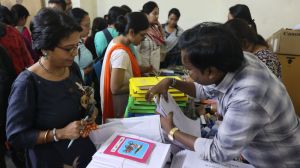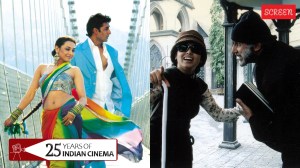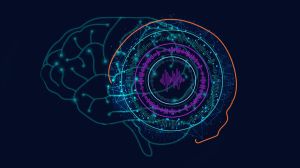In Pakistan, it’s ethical cleansing season
Dictatorship bre-eds despair in society, leading to pessimism and a disenchanted people. Disenchantment, in turn, leads to demoralisation an...

Dictatorship bre-eds despair in society, leading to pessimism and a disenchanted people. Disenchantment, in turn, leads to demoralisation and a defeatist attitude.
This defeatist attitude is growing in Pakistan and in a number of countries that share, with Pakistan, a common history. A history of contradictions, where freedom from colonialism was quickly replaced by domestic tyranny.
In a dictatorship, the appeal is to benefit oneself for a plot, a permit or a post. It breeds a culture of corruption that erodes the nobility of the individual and the soul of society.
In contrast, political parties ask followers to abandon self-interest for a greater cause. This is what infuses the spirit of life into the soul of a nation.
Prosperous societies are built around the majesty of law. Judges overturn governmental excesses to protect the individual. Once the dominant Muslim culture rested on the pillars of Adl and Insaaf — of being just and dispensing justice. In the 21st century, the legacy of fighting for the rule of law and the emancipation of society is giving way to the use of force.
History is replete with examples of those marginalised because they thought wrong was right in the pursuit of an end they believed justified the means. This is where some Muslim societies started to wander after a period of greatness.
Some Muslim schools began teaching it was alright to commit a wrong (haraam) act if it was for a right (halal) end. Greatness rests on a sense of justice. Talk of a just leadership, a just society, a just war echoes through the corridors of history.
Civilisations collapsed, and societies are collapsing, as the distinction between right and wrong, right and might blurred. To build ethical societies, so many gave so much during the wave of anti-colonialism movements that in the 20th century produced independent nations. Today some of those independent nations in the arc from Aden in the Yemen to the straits of Malacca face dangers of disintegration.
The danger comes from despotism. Dictatorial rulers use oppression, injustice, corruption to either bribe or terrorise otherwise good souls. Fear begins to guide actions and reactions replacing the confidence that flows from the security that justice will be done.
Perhaps for this reason all the great religions of the world emphasised the importance of the word ‘‘just’’. When humanity is unable to act justly, humanity loses its divine spirit. Without this spirit, life ebbs away.
Islamabad is a case study. As elections are rigged, parliament mocked, parliamentarians pressured to sell themselves, the judiciary decried by the Pakistan Bar Council, the children of our generation suffer. Their upbringing is handicapped by society’s incapacity to differentiate between right and wrong.
The Middle East is also an example. Here the Israelis and Palestinians have ceased to care about each others children. The targets are not military. They are civilians randomly chosen to be killed.
Hate generates hate. An Israeli leader threatens to assassinate the president of the Palestinians. It is a reflection of the times that such a shocking threat was made. Even more sadly that such a threat was silently received by the majority of nations.
If such a threat is permitted to materialise, a Palestinian may assassinate an Israeli prime minister in retaliation. The Israelis will then up the ante. The vicious cycle of violence will continue.
The dominant value of the past was spread by European powers, for whom civil rights and compassionate tolerance were hallmarks of greatness. Today America is the undeclared new empire. It is an empire born of a past where the maxim in the expansive wilderness was a raw and ready justice: ‘‘dead or alive’’. This is in sharp contrast to the European ethos where each individual, even the most grotesque murderer, had rights and was entitled to an impartial trial.
Previously a person was innocent before proven guilty. And that is what the United Nations Human Rights Convention still says. Yet the UN is no longer what it once was. A person is now presumed guilty and must battle to prove innocence.
The changing ethos takes place against a more violent world. It seems that the ones with might need not listen to representative bodies or submit to collective will. Thus Pakistan’s dictator can remain president and army chief irrespective of what parliament thinks. And parliamentarians in Pakistan can switch sides irrespective of what their constituents or parties think.
It must be asked: can such a value system produce great societies and greater nations?
The author is former prime minister of Pakistan



- 01
- 02
- 03
- 04
- 05




























